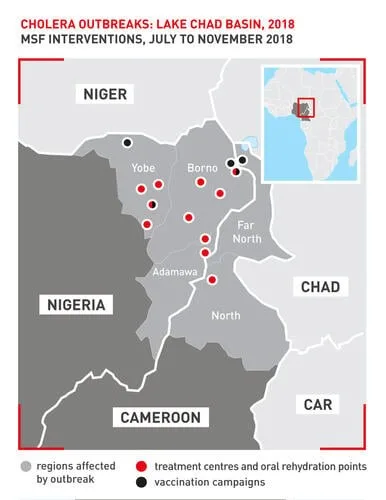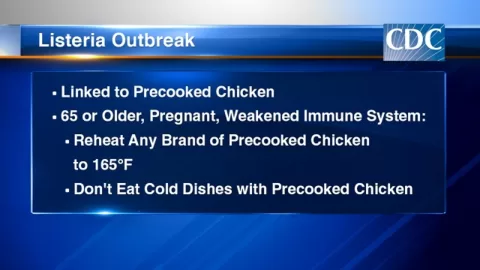A concerning **Listeria outbreak** has recently emerged, with reports detailing seven new illnesses and two additional fatalities linked to contaminated prepared pasta meals. According to updates from the Centers for Disease Control and Prevention (CDC), a total of 27 individuals across 18 states have fallen ill due to the outbreak strain of *Listeria monocytogenes*. This alarming situation has raised significant concerns about food safety, leading to product recalls, including various items from popular brands like FreshRealm. Notably, the CDC’s Listeria warning highlights the risks associated with consuming pre-cooked meals purchased from major retailers like Walmart and Kroger. As investigations continue, consumers are urged to remain vigilant and check their food for any recalled items to prevent further illness.
The recent surge in cases of listeriosis, marked by a multistate health crisis, underscores the dangers posed by foodborne pathogens. This incident, tied to ready-to-eat pasta products, brings attention to the need for heightened food safety measures across the supply chain. With the CDC and FDA actively monitoring the situation, the health implications for vulnerable groups, such as pregnant women and the elderly, remain a significant concern. The recall of various prepared meals illustrates how swiftly foodborne outbreaks can unfold and impact consumer health. As reports of affected products surface, staying informed through reliable food safety news is crucial for safeguarding public health.
Understanding the Listeria Outbreak
The recent multistate Listeria outbreak has raised significant concern among health officials and consumers alike. With seven new illnesses and two additional deaths reported, the CDC has emphasized the severe impact of Listeria monocytogenes on public health. As of the latest updates, a total of 27 individuals across 18 states have been infected, highlighting the widespread nature of this outbreak. The effects of Listeriosis can be particularly dire, leading to hospitalizations and fatalities, particularly among vulnerable populations such as the elderly and pregnant women.
The outbreak is linked to prepared pasta meals from Nate’s Fine Foods, with initial strains identified in products produced by FreshRealm. Notably, this has prompted recalls of various prepared meals including those sold at major retailers such as Walmart and Kroger, exacerbating concerns about food safety. As investigations continue, it’s crucial for the public to stay informed about the specifics of this Listeria outbreak, including the symptoms to watch for and the types of foods involved.
Recalls and Food Safety Measures
In response to the Listeria outbreak, several products have been recalled based on preliminary findings from health departments. The specific items that consumers should be wary of include popular dishes like Sprouts Farmers Market Smoked Mozzarella Pasta Salad and Scott & Jon’s Shrimp Scampi. These recalls underscore the importance of food safety news in preventing further spread of Listeria monocytogenes. The health risks associated with these contaminated products are significant, with the CDC advising consumers to thoroughly check their refrigerators for any recalled items.
The FDA has indicated that both they and the CDC are actively investigating to determine whether individuals affected by the outbreak have consumed these recalled foods or if other products may also pose a risk. This situation illustrates the collaborative effort between agencies to keep the public safe and informed about potential foodborne illnesses. As part of this initiative, consumers are urged to report any symptoms related to Listeriosis, further enabling health officials to track and contain the outbreak efficiently.
These recalls not only affect the immediate consumers but also raise broader questions about food safety practices in the food industry. Ensuring rigorous testing and monitoring from producers to retailers is crucial to prevent such outbreaks. The case at hand exemplifies the need for effective communication regarding potential risks and prompt action from companies when threats emerge.
Who is at Risk from Listeria?
Listeriosis predominantly affects specific vulnerable groups, including older adults, young children, individuals with weakened immune systems, and pregnant women. Older adults particularly face a heightened risk with a median age of diagnosed patients being around 74 years in this recent outbreak. Due to the potential severity of infections, it’s vital for these populations to remain vigilant and informed about the foods they consume, particularly those that are pre-prepared or widely distributed.
Pregnant women, even those who may only experience mild symptoms, face serious risks tied to Listeria infections, including miscarriage or stillbirth. This makes it imperative for expectant mothers to be aware of food safety practices and to adhere to recalls quickly. Understanding the demographics at heightened risk for Listeriosis helps inform public health initiatives and guides consumers to make safer food choices.
Symptoms of Listeriosis to Watch For
Recognizing the symptoms of Listeriosis is crucial for early detection and treatment. Common signs include fever, muscle aches, and gastrointestinal issues such as nausea or diarrhea. In more severe cases, particularly among high-risk individuals, the infection can lead to headaches, stiff neck, confusion, loss of balance, and seizures. Given the serious nature of Listeriosis, especially when it progresses to meningitis or septicemia, it is important for individuals to seek medical attention promptly if they suspect they have been affected.
The onset of symptoms can vary, often appearing within a few days to several weeks after exposure to contaminated food. Awareness of these symptoms is particularly important for individuals who belong to at-risk categories, as timely treatment can significantly improve health outcomes. If one experiences these symptoms, especially following the consumption of potentially contaminated foods, it is essential to connect with a healthcare provider.
Consumer Guidance During an Outbreak
In light of the ongoing Listeria outbreak, consumers are advised to take proactive measures to protect their health. First and foremost, individuals should constantly monitor public health announcements from the CDC and FDA regarding specific recalls and safety guidelines. By staying informed, consumers will have the best chance to avoid contaminated products and understand any emerging risks associated with pre-cooked meals and other prepared foods listed in food safety news.
Additionally, individuals should practice safe food handling techniques at home, including washing hands, surfaces, and utensils regularly. Properly cooking and storing food can prevent not only Listeria but other foodborne illnesses as well. Being aware of the symptoms associated with Listeria and discussing concerns with healthcare providers can contribute to a safer dining experience, especially for vulnerable populations.
The Role of Health Officials in Containing Outbreaks
Health officials play a fundamental role in monitoring, investigating, and controlling outbreaks like the current Listeria situation. Agencies such as the CDC and FDA collaborate to identify sources of contamination, implement recalls, and communicate necessary health advisories to the public. Their continuous efforts help to connect outbreak cases, ensuring that common links are established between affected individuals and contaminated food products.
As they work to address the current outbreak, public health officials will also emphasize the importance of preventive measures in their public communications. By educating consumers on how to detect Listeria monocytogenes, review food recalls, and practice food safety in their own homes, they empower the public to participate actively in reducing risk. The commitment from these agencies is critical in fostering a culture of safety when it comes to food consumption.
Prepared Pasta Recall Explained
The recall of prepared pasta meals linked to the outbreak sheds light on the complex food supply chain and its vulnerabilities. With specific products from Nate’s Fine Foods being recalled after Listeria was detected in samples, the focus on food safety has intensified. FreshRealm’s involvement further illustrates the interconnectedness of large food production companies and the challenges they face in ensuring their products are safe for consumption.
As companies respond to these findings, consumer trust is a crucial factor that must be preserved. Clear communication about the recall process and transparency regarding potential contamination risks can help reassure the public. Understanding the reason behind the prepared pasta recall is vital for consumers to make informed choices and avoid any health risks associated with contaminated products.
Preventing Future Listeria Outbreaks
Preventing future outbreaks of Listeria monocytogenes involves a multi-faceted approach that includes improved food processing practices, rigorous testing, and effective communication channels between producers, retailers, and consumers. Engaging in regular inspections and ensuring compliance with food safety regulations can significantly reduce the risk of contamination at the source.
Furthermore, educating consumers about safe food handling, proper cooking temperatures, and the importance of promptly responding to recalls can enhance overall food safety. Public health campaigns that raise awareness and provide actionable steps can contribute to a significant reduction in the incidence of foodborne diseases, including Listeriosis. The collaborative effort of all stakeholders is essential in maintaining high food safety standards and preventing future outbreaks.
The Importance of Reporting Foodborne Illnesses
Reporting foodborne illnesses is crucial for public health surveillance and outbreak control. When individuals report symptoms consistent with Listeriosis, it enables health officials to identify potential outbreaks more rapidly and initiate investigations. In the case of this Listeria outbreak, understanding the patterns and sources of infection is vital for developing effective preventive measures.
Moreover, consumer feedback about food products and experiences can guide manufacturers to improve their safety protocols. By encouraging the public to communicate with health departments about suspected foodborne illnesses, communities can work together to ensure that food safety is prioritized, potentially reducing the incidence of Listeria and other foodborne pathogens.
Frequently Asked Questions
What is the current status of the Listeria outbreak related to prepared pasta meals?
The Listeria outbreak has resulted in 27 reported infections across 18 states, with 25 hospitalizations and 6 deaths as of yesterday. New cases and deaths have emerged, highlighting the ongoing nature of this public health concern.
Which foods are linked to the current Listeria monocytogenes outbreak?
The outbreak has been linked to prepared meals, particularly pre-cooked pasta made by Nate’s Fine Foods. Specific products include those produced by FreshRealm, as well as various ready-to-eat meals sold at Walmart and Kroger.
What measures are being taken in response to the Listeria outbreak?
In response, Nate’s Fine Foods has expanded its recall of certain pre-cooked pasta products. The CDC and FDA are actively investigating the outbreak, monitoring for additional cases, and advising consumers to check for recalled items.
How can I identify if my food products are affected by the Listeria outbreak?
Consumers should look for recalled products such as Smoked Mozzarella Pasta Salad from Sprouts and Scott & Jon’s Shrimp Scampi. It is advisable to review these recalls and safely dispose of any affected items to reduce the risk of Listeria infection.
Who is most at risk during the Listeria outbreak?
Individuals at higher risk for serious illness from the Listeria outbreak include older adults, young children, pregnant women, and those with weakened immune systems, as they are more susceptible to listeriosis, which can have severe consequences.
What symptoms should I watch for if I suspect Listeria exposure?
Symptoms of listeriosis can include fever, muscle aches, nausea, and diarrhea. If the infection spreads to the nervous system, more severe symptoms like headache, stiff neck, and confusion may occur. Medical attention is advised if these symptoms arise after potential exposure.
What guidance does the CDC provide regarding food safety after the Listeria outbreak announcement?
The CDC emphasizes the importance of food safety practices, such as washing hands, cooking foods thoroughly, and properly storing food. They also recommend checking for recalls of products possibly contaminated with Listeria monocytogenes and discarding any that are affected.
How do Listeria infections affect pregnant women specifically?
Pregnant women are particularly vulnerable to listeriosis, even with milder symptoms. The infection can lead to severe complications such as miscarriages and stillbirths, making it critical for pregnant individuals to avoid potential sources of Listeria.
| Key Point | Details |
|---|---|
| New Illnesses and Deaths | Seven new illnesses and two additional deaths reported. |
| Total Infections | 27 people infected across 18 states. |
| Hospitalizations and Deaths | 25 hospitalizations and 6 deaths recorded. |
| Demographics | Patient ages range from 4 to 92 years, median age is 74, two-thirds are women. |
| Source of Outbreak | Linked to prepared meals with pre-cooked pasta from Nate’s Fine Foods. |
| Recalls | Products recalled include Smoked Mozzarella Pasta Salad, Shrimp Scampi, and more. |
| Advice to Consumers | Check refrigerators for recalled items; report any illness. |
| At-Risk Populations | Primarily affects older adults, young children, weakened immune systems, and pregnant women. |
Summary
The recent Listeria outbreak has raised significant health concerns, with seven new illnesses and two additional deaths highlighting the severity of this situation. Coinciding with the reports from the CDC and FDA, affected individuals are urged to check for recalled prepared pasta meals related to Nate’s Fine Foods. With the outbreak strain of Listeria reportedly linked to products sold by Walmart and Kroger, it is crucial for consumers to remain vigilant and aware of the risks. As always, individuals in high-risk categories, including pregnant women and older adults, should take extra precautions to avoid any contact with contaminated food sources.
The content provided on this blog (e.g., symptom descriptions, health tips, or general advice) is for informational purposes only and is not a substitute for professional medical advice, diagnosis, or treatment. Always seek the guidance of your physician or other qualified healthcare provider with any questions you may have regarding a medical condition. Never disregard professional medical advice or delay seeking it because of something you have read on this website. If you believe you may have a medical emergency, call your doctor or emergency services immediately. Reliance on any information provided by this blog is solely at your own risk.








